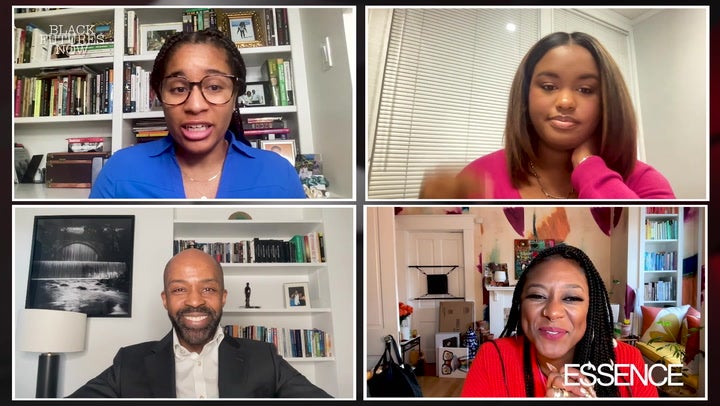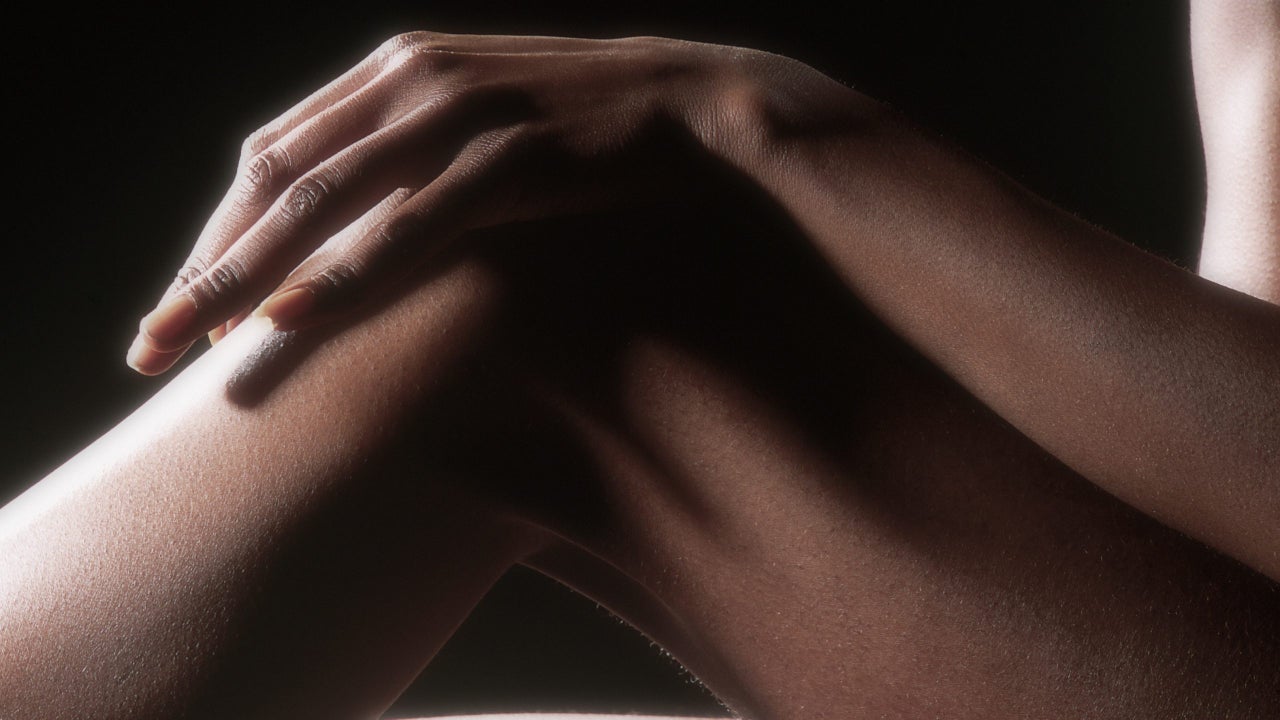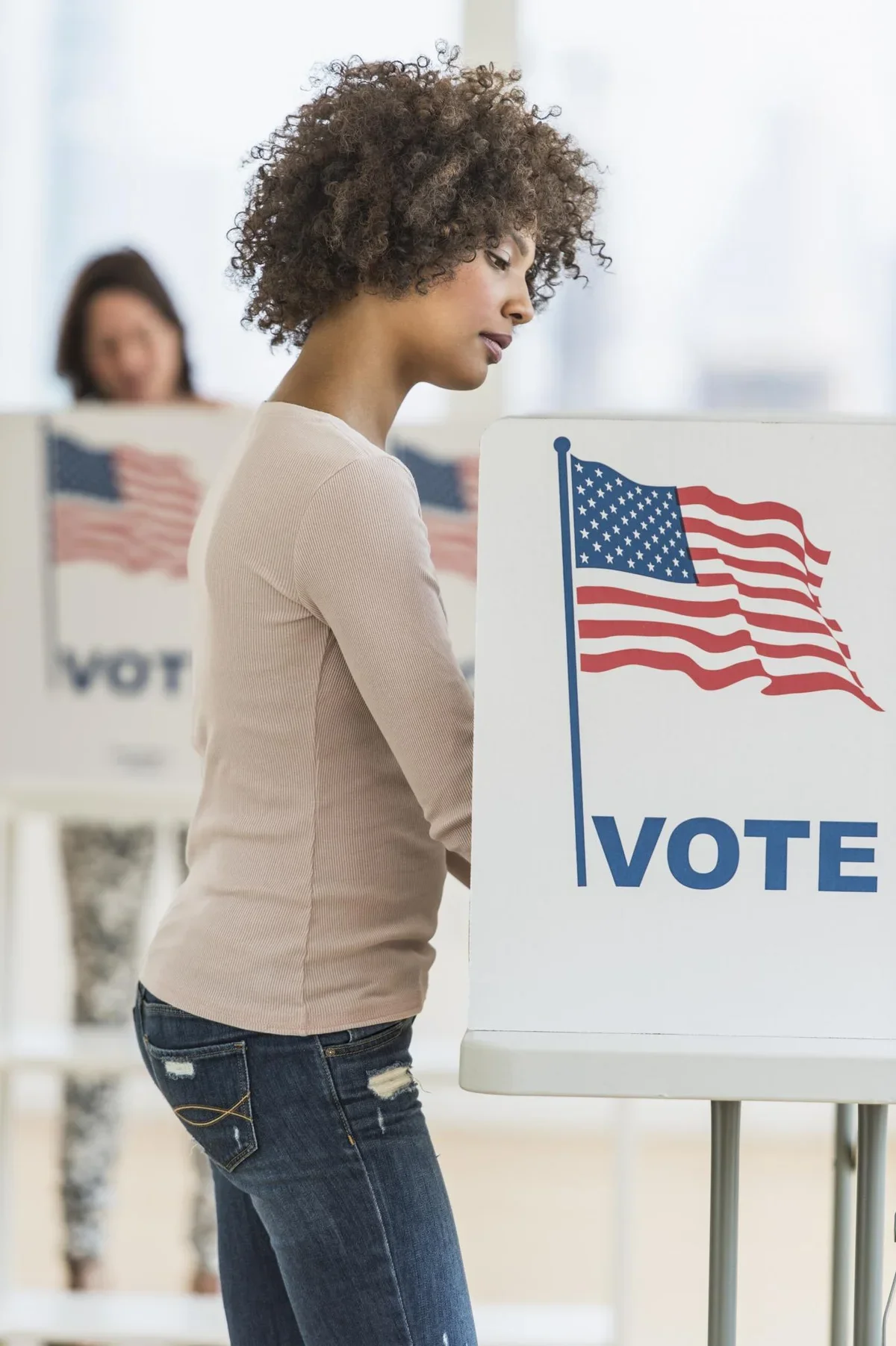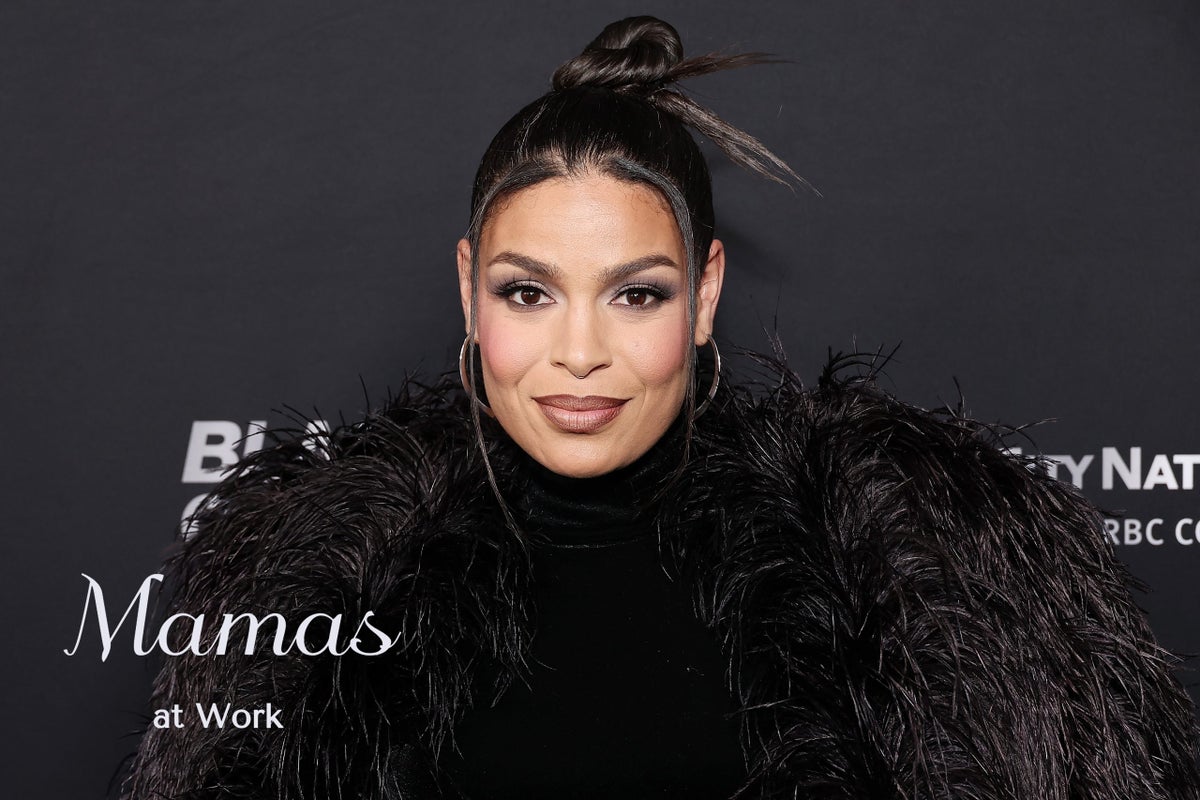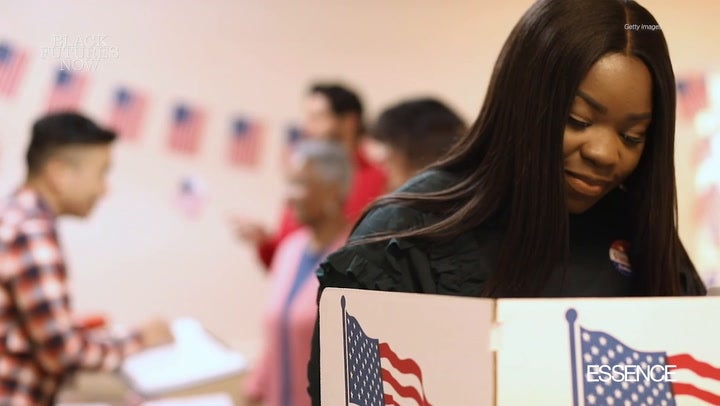
In the run-up to the 2024 presidential election, ESSENCE Contributing News and Politics Editor Melissa Noel sat down with two of our inaugural Black Futures Now honorees to discuss key voter issues impacting Black and brown communities and ways to take action.
Angela Ferrell-Zabala is a lifelong organizer and the first-ever Executive Director of Moms Demand Action, a grassroots movement of Americans fighting for public safety measures that can protect people from gun violence. Mawuli Davis is a civil rights attorney and founding partner of Atlanta-based Davis Bozeman Johnson Law.
In the discussion, which centered on policing, gun violence, youth activism, and advocacy, both Ferrell-Zabala and Davis emphasized the need for consistent community engagement, collaboration, and speaking to the concerns of young Black voters who are no longer moved to get out and vote just because it’s what’s always been done without seeing tangible results of change.
The conversation started by discussing what brings the changemakers hope about the future for Black people in America. As someone who works in communities experiencing the lasting trauma of the widespread issue of gun violence and advocates for gun violence prevention daily, Ferrell-Zabala says, “We understand how pervasive it is in this country. We understand how it impacts the Black community, but I get up every single day and make the choice to do this because I know that without hope, I wouldn’t be here without hope. I know that our ancestors, I know my family members have moved us to a place where we can do this work and our voices can be elevated.”
“I also look at young leaders nowadays that are stepping up and taking things into their own hands and using different modalities to do that, whether through art, culture or whatever it may be. They’re finding the spaces, so I have a lot of hope,” she added.
Davis echoed the sentiment about being hopeful about Black America’s future due to the strong foundation laid by those who came before us. “My hope is based largely on the work of our ancestors and their ability to accomplish incredible feats in spite of meager resources, and you have so much more in resources than they had, but they had will, they had integrity, so standing on those ancestors shoulders allows us to be able to see above the negativity, it allows us to see beyond the challenges that we have in the young people that we have.”
He provided examples of youth-focused spaces, such as The Black Man Lab and The Black Women’s Lab, where he says young people’s voices are heard.
“My students, they come in, and they’re on fire. They are ready for a new day. And not only are they ready for it, figuratively, they’re prepared to work towards it. And that gives you the fuel that you need in our work as organizers, and public policymakers. Despite the challenges of civil rights work, he believes that as a community, we have all that we need “to be victorious in our struggle for liberation.”
When it comes to building awareness and taking action to prevent gun violence on a policy level, starting in our local communities, Ferrell-Zabala says that it’s important to meet people where they are and include them in the process. “Whether we’re talking about talking to young folks at HBCUs, we’re talking with people in their communities, and making sure that they’re included in the strategy. It’s critical because they often know exactly what is needed; they just are lacking the resources to accomplish or really scale up what they’re doing,” she says.
As a civil rights attorney, Davis says that in addition to working on and seeking justice for clients in individual cases, we must address the system that continues the cycle of gun violence and police brutality with little change. “We also have to address the system, the system that says our lives are valued less, that we can withstand more pain than other people, all kinds of misnomers that put our young people in jeopardy on a daily basis as they drive, they walk, they go to school, they shop. In all those spaces, we are at risk, so our organizing has to remain consistent. And we have to keep pushing it up to the top of the agenda.”
Regarding heading to the polls to vote this November, our panelists were straightforward on some of the challenges that lie ahead and the need for consistent engagement and organizing.
Davis acknowledges that there is fatigue among Black voters regarding electoral politics. They want to see more tangible changes due to voting efforts, and he believes that change starts with reparations.
“We are no longer in a position to say, ‘do it because of what your ancestors sacrificed.’ [Younger voters are] just not hearing that as an appeal to vote. They want to see some tangible results for Black people. One of those that I think would be one of the clear statements is an executive order around reparations,” he says.
“The Democratic party is going to have to do something different on a national level in order to really engage young Black voters and a lot of Black people who are wondering, what are we getting for our loyalty and allegiance, and so that’s going to be a challenge, but I think it’s time,” Davis adds.
“The election is just where it starts,” says Ferrell-Zabala, who adds, “The Biden-Harris administration, hands down, has been the strongest in history when it comes to gun violence prevention efforts.” She says we have to look broader at how our votes are going to have an impact on so many things. “You have to make your voice heard. If you don’t, someone else will make decisions on your behalf.”
WATCH the full video of this conversation embedded in this story.

